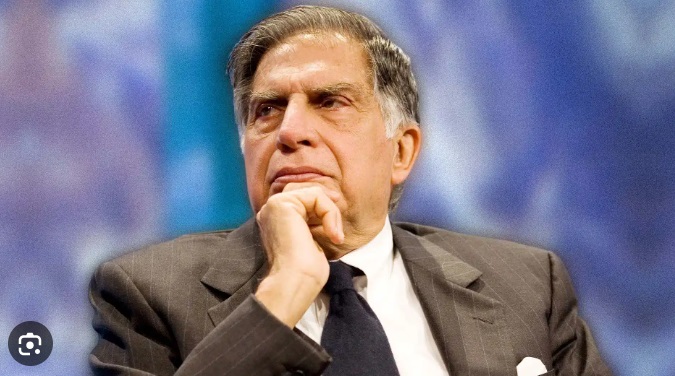Mark Zuckerberg (born May 14, 1984) is an American computer programmer and internet entrepreneur, best known as the co-founder and CEO of Meta Platforms, Inc. (formerly known as Facebook, Inc.), the company behind Facebook, Instagram, WhatsApp, and Oculus. Zuckerberg has played a central role in the evolution of social media and has become one of the wealthiest and most influential figures in the technology industry.
Early Life and Education
Mark Elliot Zuckerberg was born in White Plains, New York, to Edward Zuckerberg, a dentist, and Karen Kempner, a psychiatrist. He grew up in the suburban town of Dobbs Ferry and showed an early interest in computers and programming. By the time he was in middle school, Zuckerberg had already learned how to code and developed a reputation as a computer whiz. He created a music player called “Synapse”, which used artificial intelligence to learn users’ listening habits, and was even courted by Microsoft and AOL to buy it.
Zuckerberg attended Phillips Exeter Academy, an elite boarding school in New Hampshire, where he was known for his intelligence and academic prowess. He went on to study at Harvard University in 2002, where he concentrated on computer science and psychology. At Harvard, Zuckerberg was known for his programming skills and for working on various software projects. He was also a social figure, often navigating the intersection of technology and social interaction.
Facebook’s Creation
In February 2004, Zuckerberg launched “Thefacebook” (later simply “Facebook”) from his dorm room at Harvard with the help of his roommates Eduardo Saverin, Dustin Moskovitz, and Chris Hughes. Initially, Facebook was limited to Harvard students but quickly expanded to other Ivy League universities, then to colleges across the United States, and eventually to anyone with an email address.
The platform allowed people to create profiles, post information, and connect with others, revolutionizing the way people interacted online. Zuckerberg’s vision was to create a platform that connected people across the globe, sharing information and fostering relationships in ways that had not been done before. Within months, Facebook began to gain traction, and the company grew rapidly. Zuckerberg dropped out of Harvard in 2004 to focus full-time on Facebook, moving to Palo Alto, California, where he and his co-founders established their company in a garage.
Facebook’s Growth and IPO
Facebook’s growth was explosive, fueled by its ability to engage users and its innovative approach to social networking. By 2005, Facebook had attracted millions of users, and the company began to scale, attracting investments from prominent venture capitalists like Peter Thiel. In 2006, Facebook expanded its user base to include people over the age of 13, and by 2007, Facebook had over 50 million active users.
In 2012, Facebook went public with an Initial Public Offering (IPO), offering 421 million shares and raising $16 billion, making it one of the largest tech IPOs in history at the time. The company’s valuation at the time of the IPO was about $104 billion, and Zuckerberg, who held a significant portion of the company’s stock, became a billionaire at the age of 28. As CEO, Zuckerberg retained control of Facebook through its dual-class share structure, giving him significant influence over the company’s decisions.
Acquisitions and Expansion
Under Zuckerberg’s leadership, Facebook expanded beyond social networking, acquiring several other companies to enhance its platform and broaden its reach. Key acquisitions included:
- Instagram (2012): A photo-sharing app that Zuckerberg acquired for about $1 billion. Instagram has since grown into one of the world’s most popular social media platforms.
- WhatsApp (2014): A messaging service that Facebook bought for $19 billion, making it one of the largest tech acquisitions in history.
- Oculus VR (2014): A virtual reality company acquired for approximately $2 billion, positioning Facebook as a player in the emerging VR and AR industries.
- Messenger (2011): Originally part of Facebook, Messenger became a separate app to facilitate private messaging.
The Rebranding to Meta
In October 2021, Zuckerberg announced that Facebook would rebrand to Meta Platforms, Inc. to reflect the company’s focus on building the metaverse—an immersive, virtual world that integrates aspects of social interaction, entertainment, and commerce. The metaverse is seen by Zuckerberg as the next major phase in the evolution of the internet, and Meta’s goal is to create an interconnected virtual reality that will change the way people live, work, and socialize online.
The rebranding to Meta marked a shift from the company’s social media roots toward a broader vision that encompasses virtual and augmented reality. The metaverse concept has become a key part of Zuckerberg’s public persona and the future direction of the company, although it has also been met with skepticism from critics.
Controversies and Criticisms
Despite Facebook’s success, Zuckerberg and the company have faced significant criticism and controversy over the years:
- Privacy concerns: Facebook has been involved in numerous scandals regarding user data privacy, including the Cambridge Analytica scandal in 2018, where it was revealed that data from millions of Facebook users was harvested without their consent for political purposes.
- Misinformation and hate speech: Facebook has been criticized for its role in the spread of misinformation, political polarization, and hate speech. Critics argue that the platform’s algorithms prioritize sensationalist content, amplifying falsehoods and divisive narratives.
- Monopoly concerns: Facebook’s acquisitions, including Instagram and WhatsApp, have raised concerns about monopolistic practices in the tech industry, with some calling for increased regulation of big tech companies.
- Content moderation: Zuckerberg has faced pressure to balance freedom of speech with the need to curb harmful content, such as extremism and hate speech, on Facebook and Instagram. The company has been criticized for both overreach in content removal and inaction in addressing harmful content.
Personal Life
Zuckerberg married Priscilla Chan, a pediatrician, in 2012. The couple met at Harvard University, and their relationship was an important part of Zuckerberg’s personal narrative. They have two daughters, Maxima (Max) and August, and have been involved in various philanthropic efforts, particularly through the Chan Zuckerberg Initiative (CZI), which was founded in 2015. The initiative focuses on advancing science, education, and social justice causes, and the couple has pledged to donate 99% of their Facebook shares during their lifetimes.
Wealth and Influence
Zuckerberg has consistently ranked among the wealthiest individuals in the world. As of 2024, his net worth has fluctuated, but he remains one of the richest people globally, with a fortune tied largely to his stake in Meta. His wealth and influence have made him a central figure in debates about technology, privacy, and the role of social media in society.
Legacy and Future
Mark Zuckerberg’s legacy is still unfolding, but he is undeniably one of the most influential figures in the history of the internet. His work in creating and leading Facebook has revolutionized communication, social interaction, and digital business. However, his leadership has also sparked important conversations about the ethical responsibilities of tech giants, the social impact of social media, and the future of the digital world.
Zuckerberg’s focus on the metaverse and virtual reality positions him at the forefront of the next wave of technology, but whether the metaverse will be as transformative as Facebook remains to be seen. Regardless of the future, Zuckerberg’s impact on the digital age is already indelible.



